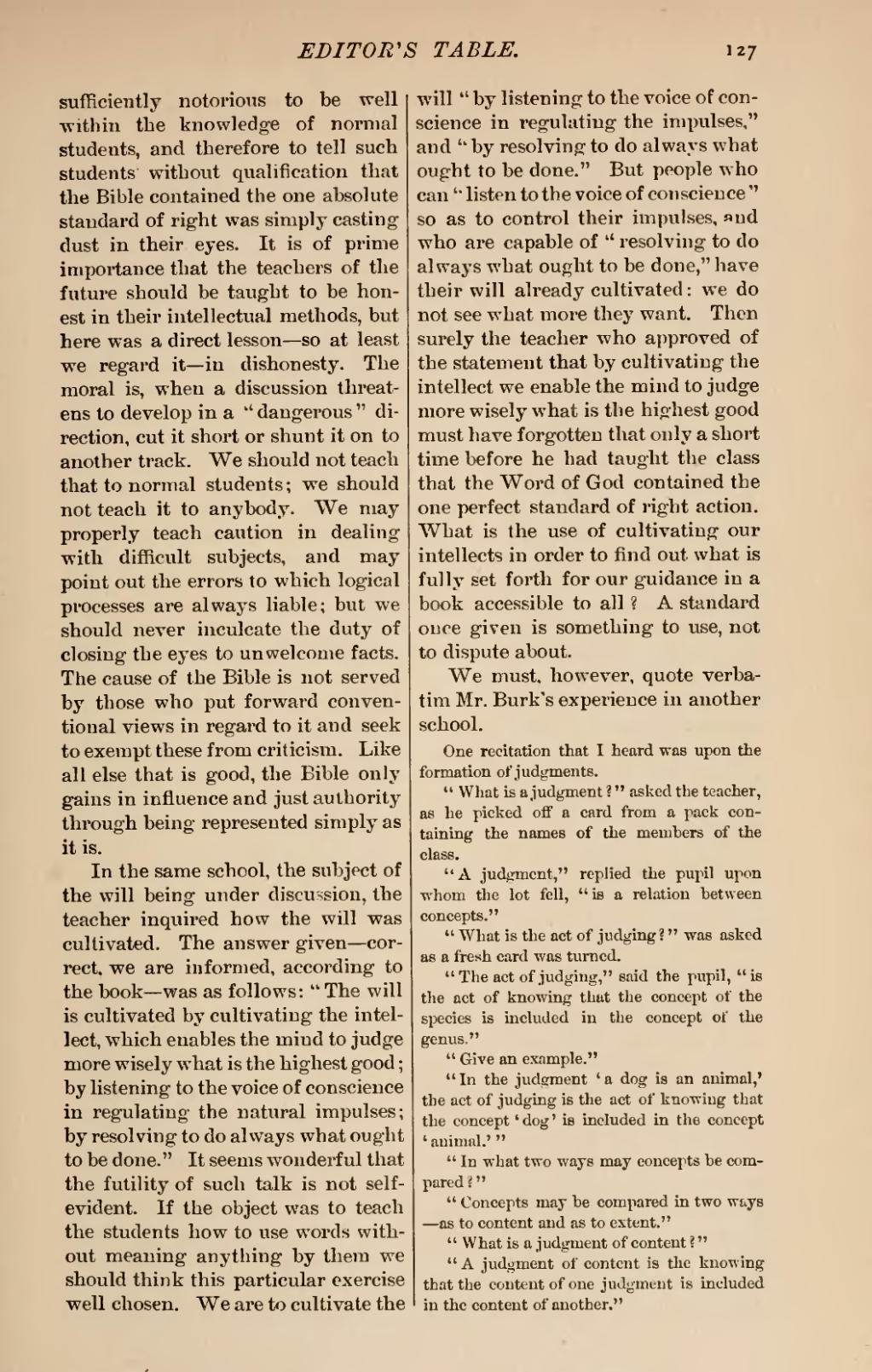sufficiently notorious to be well within the knowledge of normal students, and therefore to tell such students without qualification that the Bible contained the one absolute standard of right was simply casting dust in their eyes. It is of prime importance that the teachers of the future should be taught to be honest in their intellectual methods, but here was a direct lesson—so at least we regard it—in dishonesty. The moral is, when a discussion threatens to develop in a "dangerous" direction, cut it short or shunt it on to another track. We should not teach that to normal students; we should not teach it to anybody. We may properly teach caution in dealing with difficult subjects, and may point out the errors to which logical processes are always liable; but we should never inculcate the duty of closing the eyes to unwelcome facts. The cause of the Bible is not served by those who put forward conventional views in regard to it and seek to exempt these from criticism. Like all else that is good, the Bible only gains in influence and just authority through being represented simply as it is.
In the same school, the subject of the will being under discussion, the teacher inquired how the will was cultivated. The answer given—correct, we are informed, according to the book—was as follows: "The will is cultivated by cultivating the intellect, which enables the mind to judge more wisely what is the highest good; by listening to the voice of conscience in regulating the natural impulses; by resolving to do always what ought to be done." It seems wonderful that the futility of such talk is not self-evident. If the object was to teach the students how to use words without meaning anything by them we should think this particular exercise well chosen. We are to cultivate the will "by listening to the voice of conscience in regulating the impulses," and "by resolving to do always what ought to be done." But people who can "listen to the voice of conscience" so as to control their impulses, and who are capable of "resolving to do always what ought to be done," have their will already cultivated: we do not see what more they want. Then surely the teacher who approved of the statement that by cultivating the intellect we enable the mind to judge more wisely what is the highest good must have forgotten that only a short time before he had taught the class that the Word of God contained the one perfect standard of right action. What is the use of cultivating our intellects in order to find out what is fully set forth for our guidance in a book accessible to all? A standard once given is something to use, not to dispute about.
We must, however, quote verbatim Mr. Burk's experience in another school.
One recitation that I heard was upon the formation of judgments.
"What is a judgment?" asked the teacher, as he picked off a card from a pack containing the names of the members of the class.
"A judgment," replied the pupil upon whom the lot fell, "is a relation between concepts."
"What is the act of judging?" was asked as a fresh card was turned.
"The act of judging," said the pupil, "is the act of knowing that the concept of the species is included in the concept of the genus."
"Give an example."
"In the judgment ‘a dog is an animal,’ the act of judging is the act of knowing that the concept ‘dog’ is included in the concept ‘animal.’”
"In what two ways may concepts he compared?"
"Concepts may be compared in two ways—as to content and as to extent."
"What is a judgment of content?"
"A judgment of content is the knowing that the content of one judgment is included in the content of another."
